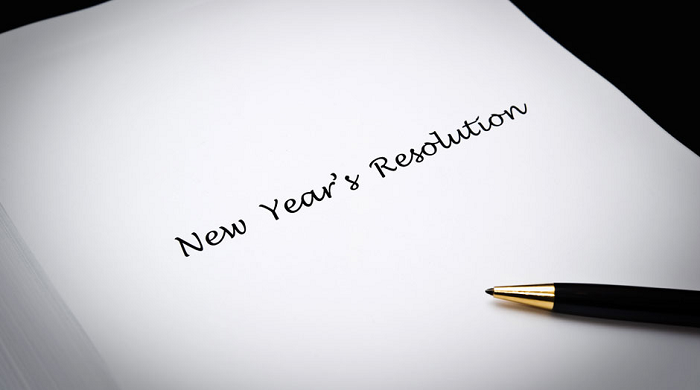
It's time to check in
For so many of us, each year generally begins with the same (usually fruitless) process: we make a list of New Year’s resolutions and assure ourselves that this time will be different and that this time we won’t break them.
We do our best to exercise more, eat healthier and get our lives in order before proceeding to conveniently forget all about those good intentions we had, letting them fall by the wayside.
Now, it’s the middle of the year, our desks are cluttered, our breakfast is a piece of toast eaten on the run and chasing after the bus is our only form of exercise. That’s why it is the perfect time to revisit and perhaps rethink those resolutions.
Checking in with your goals now is less about holding yourself to account for those things on your to-do lists that have so far gone unticked and more about checking in with where you are now.
Is there something that you now know is a little unachievable? Move the goal posts. Have you realised that keeping on track for an entire year is harder than you expected? Check in with yourself every three months.
And if it is time to completely rethink your goals, there is nothing wrong with that.
Here are some simple ways to get back on track and make some positive mid-year resolutions
One at a time
Being selective when making resolutions will reduce the likelihood of feeling too overwhelmed. Halfway through the year, with the benefit of hindsight, it is a great time to think about what is really achievable or more important, what actually matters to you.
Be realistic with how much you can achieve at once and be specific. If you had five things on your list to achieve by January, time to cut the fat – focus on the most important one.
In January, your expectations are high but by December, you will realise that implementing one goal well is better than five completely untouched.
Turn resolutions into habits
By making a resolution, we are ultimately deciding to make a change in our behaviour but it doesn’t have to be that way.
Thinking in terms of what we will do rather than won’t do will associate the change with positivity and progress. Anyone who has ever tried a diet will understand this.
Our brains drive toward the point of focus, so if we resolve to ‘drink less alcohol’, our brains focus on alcohol, which is not going to help.
If we reframe that to ‘form a habit of choosing non-alcoholic for every second drink’, we give our brain something positive to focus on.
Measure, measure, measure
“If you can measure it, you can change it is a fundamental principal of psychology,” says psychologist, Dr Paul Marciano.
Monitoring and measuring the progress of your goals will only motivate you further and will help you to identify areas that you are struggling with.
Find some metric around your habit and start tracking it. Make a sticker chart. Use an app. Post on social media… whatever it takes to visibly track progress.
Cue and reward
Sometimes, our brains just need a little push in the right direction.
Find a cue from your daily life that you can use as a link to trigger the new behaviour. This could be anything, from a song that you play regularly to an inspirational quote set as your phone screensaver.
Once you begin following these cues and achieve some progress, it is important to keep the motivation up with incentives.
Set small rewards to reward a positive response from you. If that means an occasional sweet treat after hard-core dedication to vegetables, fine.
